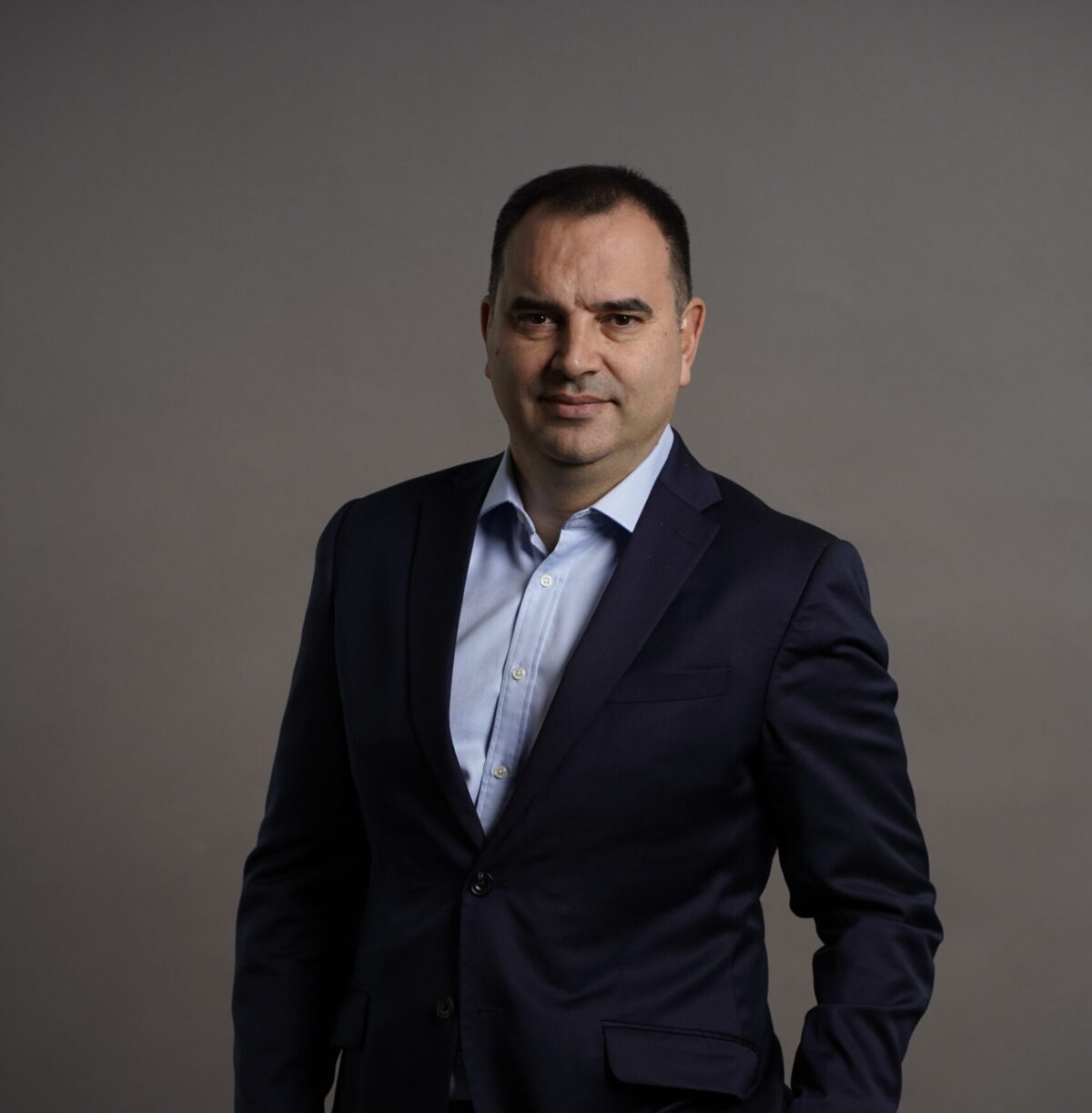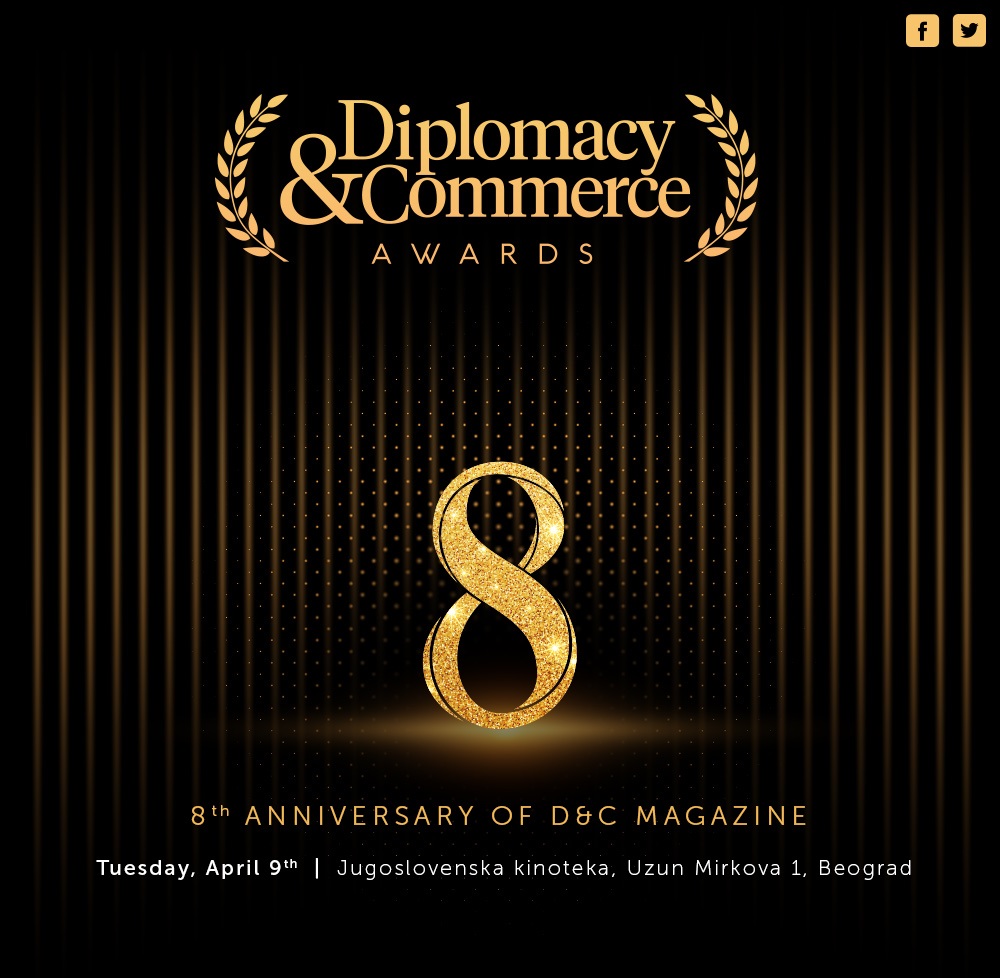On April 9th, at the Jugoslovenska Kinoteka in Uzun Mirkova 9, the Diplomacy & Commerce magazine will be celebrating its 8th anniversary at the DIPLOMACY&COMMERCE AWARDS 2024 and rewarding those who left a mark in society with their actions. In the light of this event we took our time to talk to Government Affairs Market Access Manager at AstraZeneca, Aleksandar Tripković, about their last-year experiences as laureates, the work they’ve done in the post-award period and how they see the development of their company by the end of 2024. How much do awards like this mean to you as a company?
How much do awards like this mean to you as a company?
We at AstraZeneca Serbia are extremely proud that last year we had the honor of receiving a special award for environmental protection and being recognized for our efforts and activities in this area. The company’s vision is to create and provide value to society that goes beyond the positive effect that our medicines bring to patients. The strategy of sustainable development, including the protection of the environment, is an integral part of our business, part of our DNA as an organization, it is woven into all the activities we have on the way from the laboratory to the patient, and the fulfillment of that strategy is possible thanks to the efforts of all 83,500 employees globally.
What else have you done in the area for which you won the award in the past 12 months?
At the global level, we are continuing to further reduce gas emissions, water use and waste materials, which were also reduced to an enormous extent in the previous two years (gas emissions in 2022 compared to 2021 fell by almost 60%). At the same time, we are continuing with the reforestation plan, where over 10.5 million trees have been planted globally since 2020, under the auspices of the AstraZeneca company’s “AZ Forest” global project, with a plan to plant as many as 50 million trees by 2025. As far as Serbia is concerned, in the past 12 months we have continued and will continue with actions in the field of environmental protection that we have been carrying out continuously for the past few years. Regarding afforestation, our local team has planted more than 4,000 trees since 2020. Just last year, 2,500 seedlings of walnuts, sorghum, sweet oak, and red-leaved oak were planted in the municipality of Barajevo in the zone of the rehabilitated landfill, which is planned to become forest land according to the detailed regulation plan, and in cooperation with the Faculty of Forestry, the organization “Čuvamo naše” and the local self-government in Belgrade . Also, we continued with projects to preserve bees, clean parks, and we can boast that our goal is to make our car fleet 100% electric by 2025, which is a challenging but significant step in preserving the environment.
How do you see the development of the company until the end of 2024?
This year is a jubilee year for the AstraZeneca company, as we are celebrating 25 years since the Swedish company Astra AB and the British Zeneca Group merged to create the globally recognized pharmaceutical company AstraZeneca. The company expanded its presence in Serbia by opening a new office space in which more than 100 people will work, a team that has been constantly growing since 1978, when the first office of the then parent company ICI was opened on the domestic market.
AstraZeneca has the largest portfolio in the pharmaceutical industry, and we are focused on therapeutic areas where we believe we can achieve the greatest advances in patient care, as well as the greatest benefit to healthcare systems and societies around the world. Certainly, this year one of the most important projects and realizations is the partnership between the Government of the Republic of Serbia and AstraZeneca, which joined the “BIO4” project by signing a Memorandum of Understanding. As part of this cooperation, the company will implement three strategically important initiatives, one of which is an agreement to support genetic testing for BRCA mutations in patients with early forms of breast cancer, the use of artificial intelligence in screening for early detection of lung cancer, and the establishment of a research and development department in the country in the near future.
